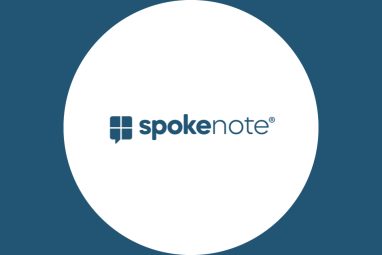Tableau Survey Explores the Data Literacy Gap in Academics and Enterprise
Recruiters rank data literacy as the highest in-demand skill for entry-level candidates today. Analytics platform Tableau announced new findings from a commissioned study conducted by Forrester Consulting on Tableau’s behalf, The Great Data Literacy Gap: Demand For Data Skills Exceeds Supply, to help better understand the gap and what can be done to close it. […]
Topics
What to Read Next

Recruiters rank data literacy as the highest in-demand skill for entry-level candidates today. Analytics platform Tableau announced new findings from a commissioned study conducted by Forrester Consulting on Tableau’s behalf, The Great Data Literacy Gap: Demand For Data Skills Exceeds Supply, to help better understand the gap and what can be done to close it.
Everyone from human resources and marketing to sales and customer support will need to have at least a solid foundation in data literacy to succeed in the modern workforce. Yet, academia does not place the same importance on data skills as an enterprise. Academic decision-makers rate data skills far lower than recruiters when it comes to importance. Only 66 per cent of surveyed academic decision-makers rated data skills and data literacy as important skills for their students to graduate with compared to 81 per cent of recruiters. Data skills were behind skills in writing, communication, computers, public speaking, and research. This shows a fundamental lack of understanding of what skills students need to get hired and succeed in the modern workplace.
Recruiters rated data literacy skills as most important, only 48 per cent of academic institutions actually have data literacy skills initiatives in place. The Forrester study found that “While 96 per cent of education decision-makers say they consider which skills recruiters value when designing curriculum, only 39 per cent say they have a strong understanding of what recruiters are looking for today.” Academics ranked data skills second to last to determine how successful institutions are in imparting workplace skills that they feel are effectively preparing students for the workforce.
However, when Forrester surveyed human resource recruiters and academics to assess the skills needed in the workforce versus what was actually being taught in the classroom, they found that data skills have risen in importance over the past five years, and the trend isn’t likely to stop soon. Recruiters ranked data literacy as the skill in the highest demand for entry-level candidates today. In addition, they said it is the skill that has grown the most in-demand over the last five years and will increase the most in importance over the next five years.
Building an insight-driven culture
A lack of supply of students with data skills and the high demand for those skills has resulted in a struggle to find qualified candidates. Sixty per cent feel that universities don’t sufficiently equip students with the right data skills needed to enter the workforce. This is particularly true for entry-level candidates coming straight from university. More than half of recruiters report that data skills are more complex to find in entry-level candidates than mid- and upper-level candidates. When they can’t fill their recruiting pipelines with suitably qualified candidates, organisations turn to training employees in data skills.
Data skills training is the second most common formal skills training courses that organisations offer. Nearly three-quarters of recruiters report that they expect to train new employees on data skills and 64 per cent of respondents report relying on new employees with data skills to teach their colleagues who lack those skills. Organisations implementing formal training courses for data skills isn’t a bad thing. Forrester considers it crucial in building an insight-driven culture. But providing data training at a basic level is a waste of time and resources — especially when new employees should be learning organisation-specific data skills to improve business outcomes.
Since 2011, Tableau has enabled more than 1.7 million students and instructors with critical data skills via the Tableau Academic Program. The program is designed to help close this data literacy gap by empowering students and teachers with free software, learning resources and programs that help build these important skills.
Also Read: Preferences for Convenience Often Outweighs Security and Privacy: IBM Report









































































































